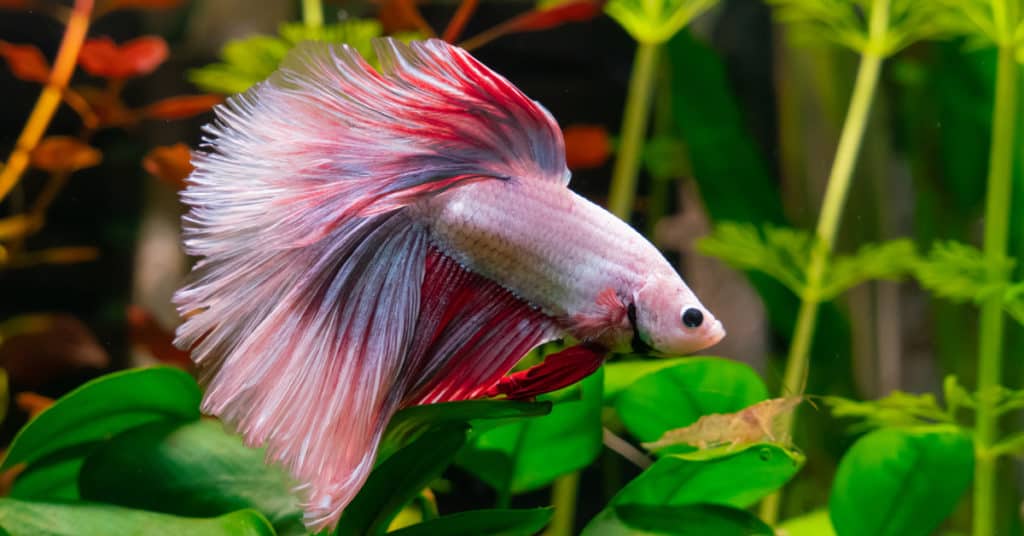**Post contains affiliate links. We take a small commission based on our product recommendations.**
There are many misconceptions about what foods a betta fish can/cannot or should/should not eat. We’re here to give you the straight answer to “what do betta fish eat?”
Betta Fish Nutrition
What do betta fish eat in the wild?
In the fish kingdom, bettas fall in the omnivore category. This means they rely on both plant and animal-based protein sources for survival. Wild bettas live in areas with limited food resources, so anything small enough to fit in their mouth is happily consumed.
What should my betta get to eat?
Yes, your betta is 100% capable of eating plants and recent studies have shown they do best if they consume both protein sources. A protein content of 35% was shown to have the best output of growth and reproduction in bettas.
Dietary fat is very high in some betta diets. Certainly, smaller fish and reproductively-active fish need extra fat, but not most bettas. There are many potential fat sources that can be added to a diet, but none are more beneficial than others. A fat level around 5% is recommended for lazy bettas.
Like many other pet fish species, bettas do not have a “true” or acidic stomach. This makes it hard to process lots of animal-based protein, or more carnivorous diets, and carbohydrates, such as fiber. Limited dietary fiber is best for most fish species, bettas included.
Bettas do not have any special dietary requirements. Their color patterns are set in their DNA and most color-enhancing pigments do not affect their appearance. Different water chemistry, particularly different minerals, may influence the lightening or darkening of various pigments.
Best Betta Diet
There are many commercial betta diets available. A few of these fall close to the 35% protein and 5% fat recommendations. Please see our webinar on how to read fish food labels for more about guaranteed analyses and ingredients. This is the food we recommend to most betta owners.
If you feed your fish too much food or too often, there is a chance they could develop gastrointestinal issues. Being tropical fish, bettas should be fed at least twice a day. If you are unsure about how much to feed your betta, it’s best to assess their body condition first and make a plan from there.
It is hard to know exactly how many pellets to feed your betta since the usual recommendations are based on kCal or calories. Without weighing your fish, you do not know their kCal requirement, but almost all fish foods do not address kCal on their labeling, so it is a relatively useless requirement. We recommend feeding no more pellets than can fit into the same volume as your fish’s eyeball. It’s the best recommendation we can make about how much to feed your betta. Since different foods and brands come in various sizes, this recommendation will vary based on the diet you select.
In addition to their pelleted diet, bettas can be fed a variety of treats. This may include frozen diets, dried diets, fresh proteins or vegetables. Since they are only supplemental snacks, they should not be fed more than 1-2x per week. Some bettas may be pickier than others! What one betta likes for a snack is not the case for all bettas. If your betta isn’t interested in one particular type of treat, promptly remove it from the tank and try something else later.
What do baby betta fish eat?
Baby betta fish, just like other baby fish, known as fry, have a higher dietary protein and fat requirements. Just because a food is “made for babies,” doesn’t mean it contains everything they need! Be sure to read the label correctly and choose a baby food with a protein between 45-50% and fat between 12-15%. We suggest this diet for many baby fishes.

